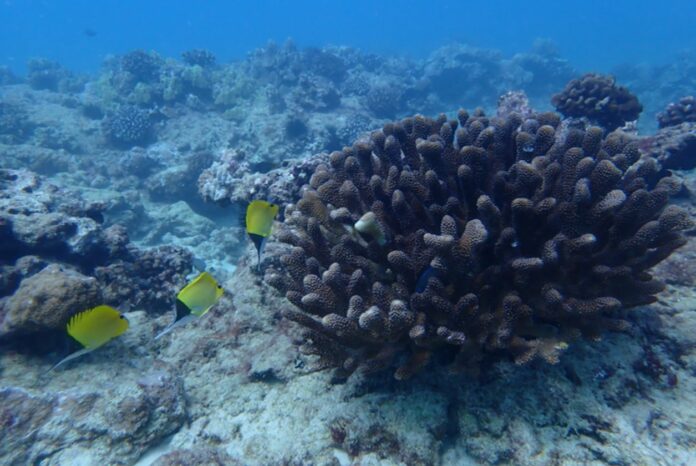In a new study, researchers look at how bad the effects of climate change will be if everything stays the same.
If climate change continues unchecked, there is more terrible news for planet Earth. Researchers from the University of Hawaii in Mnoa, United States, revealed in a study published in the open-access journal PLOS Biology today that, in the worst-case scenario, half of all coral reef ecosystems will be irreversibly impacted by unsuitable conditions within the next decade.
How well ecosystems can adjust to changes in their environment depends on the type and strength of the stressors in their environment.
Coral reefs, in particular, are vulnerable to unfavorable environmental circumstances.
The environmental suitability timetable, however, has been a source of debate.
Using CMIP5, an experimental framework meant to compute global models to enhance our understanding of climate change, researchers examined global predictions of five environmental stressors from historical scenarios to forecasts for 2100.
Sea surface temperature, ocean acidification, tropical storms, land use, and projected human population growth were some of these stressors.
“While the negative impacts of climate change on coral reefs are well known, this research,” as explained by lead author Renee Setter, “shows that they are actually worse than anticipated due to a broad combination of climate change-induced stressors.”
“It was also enlightening to find,” adds the author, “that coral would face multiple stressors – posing an even greater hurdle and challenge that would need to be overcome to increase the possibility of survival.”
Under the “business as usual” scenario, Setter and his colleagues found that 2050 is the most likely year when the world’s coral reefs will no longer be able to live in their natural environments.
When many stressors are taken into account, the date moves to 2035. Additionally, based on at least one of the five stressors examined, it is predicted that by 2055, the vast majority (99 percent) of the world’s coral reefs will be experiencing unsuitable situations.
Researchers think that by the year 2100, two or more of the stressors they found will be threatening at least 93% of reefs around the world.
“We know that corals are vulnerable to increasing sea surface temperatures and marine heatwaves due to climate change. But,” adds co-author Erik Franklin, “it is important to include the complete anthropogenic impact and numerous stressors that coral reefs are exposed to in order to get a better sense of the overall risks to these ecosystems.
“This has great implications for our local Hawaiian reefs that are key to local biodiversity, culture, fisheries and tourism.”
The research group is getting ready to move on to the next stage of the project. They will focus on how specific coral species are anticipated to be impacted by climate change.
By finding out which species are more likely to survive in bad conditions and which may be more vulnerable, the team hopes to learn which species may be more at risk from future stressors.
Image Credit: Renee Setter (CC-BY 4.0, https://creativecommons.org/licenses/by/4.0/)
You were reading: Climate Change Could Kill 50% Of Earth’s Coral Reefs By 2035, New Predictions Suggest
